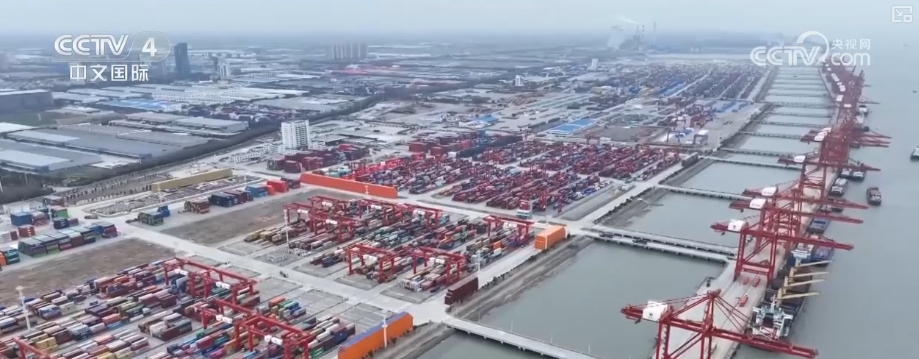The Syrian Regime Change Unexpectedly Opened A Door To China's Middle East Strategic Strategy?
The Syrian Regime Change Unexpectedly Opened A Door To China's Middle East Strategic Strategy?
Let’s talk about the background first. The relationship between China and Syria began to establish diplomatic relations in 1956, but it was not until the Assad era, especially after Bashar came to power, that there was some substantial content. When the Syrian civil war broke out in 2011, China voted several times in the UN Security Council to block the West
Let’s talk about the background first. The relationship between China and Syria began to establish diplomatic relations in 1956, but it was not until the Assad era, especially after Bashar came to power, that there was some substantial content. When the Syrian civil war broke out in 2011, China voted several times in the UN Security Council to block the West's resolution to overthrow Assad. It is not because China is particularly strongly supporting Assad, but because China has always opposed external interference in other countries' internal affairs, which is similar to Russia and Iran's position. Economically, China has promised to help rebuild. In 2017, it was reported that Chinese companies planned to invest $2 billion in infrastructure and energy, but they did not actually implement much. By 2023, when Assad visited China, the two countries will upgrade to a strategic partnership, and China also supports Syria's accession to the Belt and Road Initiative. Bilateral trade is only US$300 million to 400 million, which is as small as Afghanistan. Foreign media love to hype, saying that China has suffered heavy losses and lost three trillion markets, which is purely exaggeration. China's investment in Syria is already small, far from being hurtful.
After Assad's fall, many analysts said that China's influence in the Middle East was frustrated. Indeed, the Assad regime is the fulcrum of Iran and Russia in the Middle East. Without it, Iran's resistance axis will be weaker, and Russia's military presence in the Middle East will also shrink. China has good relations with Iran and Russia. These two people suffer losses in the Middle East, and China is also indirectly affected. For example, China needs support from Russia and Iran at the United Nations to block Western accusations of the Xinjiang issue. Now that Syria has changed, Iran's power has weakened, China may have to spend more time on some international occasions.
But this is not a fatal blow. China's foothold in the Middle East is not relying on Syria at all. China's actions in the Middle East in recent years have mainly relied on economy and diplomacy, and did not engage in military intervention. In March 2023, China promoted a reconciliation between Saudi Arabia and Iran in Beijing, which caused a sensation around the world and directly changed the hostile pattern in the Middle East. After Saudi Arabia and Iran shook hands, there were fewer regional conflicts and China's influence rose rapidly. The Beijing Declaration is a continuation of this matter, emphasizing peaceful development and no confrontation. China's image in the Middle East is a neutral mediator, not as partial as the United States, nor as involved in war as Russia.

Now that the new Syrian government has come to power, the transitional government led by Ahmed Sala was established in December 2024, promising to engage in national dialogue, reform the constitution, and rebuild the country. But the situation is chaotic, and there are many factions within the opposition, and the Kurds, Druzes and Sunnis each have their own plans. What about the outside? Türkiye supports the opposition, but does not deal with the United States and Israel. Israel has air strikes on Syrian targets, the United States supports Kurdish armed forces, Russia withdraws troops, and Iran's influence declines. This situation is like a big fight, and all parties need to find a balance. China is just in a position to get involved. Why do you say you open the door? Because the old pattern is broken, it is easier for new combinations to enter the market. In the past, the main players in the Middle East were the United States, Russia, Turkey and Iran, and China had a weak influence. Now, the chaos has allowed countries to see that China can provide economic assistance without political conditions. Syria has huge demand for reconstruction, infrastructure has been destroyed, and roads, bridges and electricity have to be restored. China's Belt and Road Initiative is just the right way, and engineering teams and funds can come in handy. In January 2025, there were reports that China was considering contacting the new government through diplomatic channels. Although it was not very popular, it was already discussing the possibility of cooperation.
What China plays in the Middle East is not a zero-sum game, but a win-win situation. During the Assad era, China invested less money, mainly because it focused on Syria's geographical location, connecting Europe and Asia, and a potential trade hub. But now that the new government has come to power, China can avoid Western sanctions and directly participate in reconstruction. The Caesar Act was introduced in 2019, banning other countries from helping Syria rebuild, resulting in economic collapse. China used to be a lot of concerns, but now after the changes, it can get around it in its own way. For example, through the two grasps of Saudi Arabia and Iran, China can coordinate all parties. Saudi Arabia has promised to invest billions of dollars to rebuild, and Iran is weak but still has influence. China can pull them and promote the peace process. In July 2025, there were conflicts between Druze and Bedouin clans in Suveda Province, Syria, but overall it was stable. China is not in a hurry to express its support for anyone, but emphasizes dialogue, which makes all countries feel that China is reliable.


Fifteen-year classic "Mu Miracle": The choice of old players' feelings





